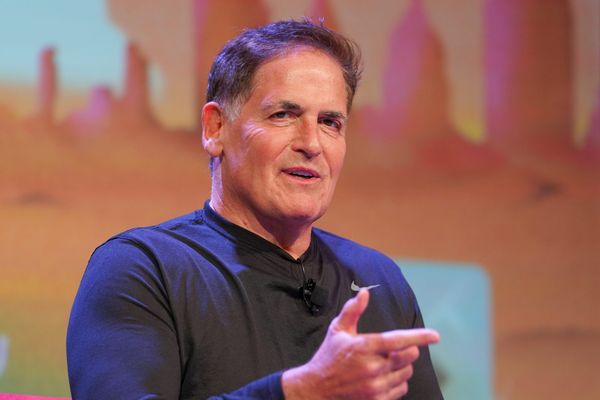Aug. 18--With his scraggly beard, tousle of curly brown hair, dark jeans and well-worn T-shirt, Matthew Aucoin could easily pass for your average rumpled college freshman.
But sit him down to talk about his crowded life in classical music, and his rapid rise to the top of classical's most-promising list, and you find yourself in the presence of a bright, eager, articulate 25-year-old polymath who seems as astonished as anyone by how quickly everything has been falling into place for him.
The young American composer, conductor, pianist, poet and critic already is being called in some breathless media outlets the next Leonard Bernstein, a comparison he finds flattering but also confusing. "I'd rather be the first Matt Aucoin," he said, amiably but firmly, during a recent interview backstage at Lyric Opera. "I don't think my music or my priorities resemble Bernstein's at all."
About those priorities. Although the prodigiously gifted Aucoin (pronounced "oh-coyne") has more than enough podium engagements to keep him busy for several seasons to come, he thinks of himself primarily as a composer who also conducts. And it is as a composer that Chicago audiences will hear him this week.
His chamber opera for young people, "Second Nature," a Lyric Opera commission, will receive its world premiere under auspices of the company's Lyric Unlimited wing in four sold-out performances Wednesday morning and Thursday afternoon in Cafe Brauer at Lincoln Park Zoo.
Aucoin's "dystopian fairy tale," as he calls it, is set in a future where climate change has made most places on the planet unliveable. Humans have retreated to a hermetically sealed shelter called the Habitat to protect them from the outside world. Encouraged by a talking ape that tells them how wonderful the world once was before humankind neglected nature, the children Lydia and Jake break free of the shelter to experience the real world for themselves.
"It somehow felt appropriate to do a piece about humanity living in a synthetic habitat and presenting it in the enclosed space of a zoo," says the composer-librettist, who scored the hourlong, site-specific work -- it's his fourth opera -- for five singers, violin, clarinet and piano. "I think a lot of adult operas are dressed-up fairy tales anyway, but I do think that kids are much less likely than an adult opera audience -- no offense to the Lyric subscribers -- to complain that the music is too spiky or something, because they don't have any preconceived notions. If that can be their first experience of opera, great."
"One of the opportunities we have with Lyric Unlimited is to think about how we can explore the boundaries of the art form," explains director Cayenne Harris. "A new opera on contemporary themes, or themes relevant to young people, gives us a chance to share opera with new audiences in its most basic form, as storytelling through music."
Aucoin wrote his first opera, based on the Redwall children's novels, at 11 while growing up in a suburb of Boston. He came to Lyric Opera's attention through creative consultant Renee Fleming, who had caught two of his earlier operas at Harvard when he was pursuing an undergraduate degree in English. "I was a bit amazed she saw enough in them to believe I was ready for prime time," he says.
Coincidentally, the meeting that Fleming arranged between Aucoin, Harris and Lyric general director Anthony Freud came the same week Aucoin was auditioning for the Solti apprenticeship -- conducting the fourth act of Verdi's "Otello," no less, under the critical eye of that ace Verdian, Riccardo Muti. "It was a surreal week!" Aucoin recalls.
Fortunately both auditions came off sucessfully. His mentorship with Muti -- "the most important in my conducting life" -- was just what he needed to take him to a different level as a conductor, since the baton practice he got at Harvard left him with more practical experience than technical finishing, he explains.
"I had had some experience as an assistant conductor at the Metropolitan Opera and also some guest conducting, but what I really (needed) was longterm exposure to the way someone like Muti works day to day with an orchestra like the CSO. I wanted to find out what you actually need to do to make a weekly subscription program better." Aucoin found out, learning a great deal more in the process. "One of Muti's gifts is knowing what not to touch, finding that one thing to work on that makes, for example, Schubert's music smile."
The one piece of Maestro advice that really hit home: "Plant your feet in the earth. Muti told me I move around too much when I conduct. I'm glad I have the energy I have and I'm glad he tempered it. He gave me the poise, economy and confidence I need to now go and make my own mistakes."
Aucoin's apprenticeship included leading a CSO subscription program and also a CSO chamber program that included his own "Celan Songs." In March, he directed razor-sharp readings of Thomas Ades' gnarly "Asyla" and Stravinsky's "Petrushka" with the Civic Orchestra of Chicago. He will return to the Civic in the coming season to lead Mozart and Schubert symphonies.
Meanwhile, composer Aucoin has several commissions on his plate, including an opera for the Metropolitan Opera/Lincoln Center Theater New Works Program. Last April, in Cambridge, Mass., the American Repertory Theater premiered Aucoin's opera "Crossing," about poet Walt Whitman's experience tending to wounded soldiers during the Civil War.
Stylistically the composer describes himself as "a total magpie" who raids from many nests, including Ades and Alban Berg and various rock and jazz musicians. Aucoin in fact played keyboards in a rock band during high school before returning to classical music at Harvard, where he conducted various student productions and won several literary awards for his poetry.
He admits there was a brief period following his graduation from Harvard in 2012 when he took on too much and found himself overextended.
"You don't expect things to work out when you're a young musician just out in the real world, so I cast the net pretty wide," Aucoin says. "Much to my surprise, a few things worked out all at once" -- including his being named an assistant conductor at the Met -- "and for a few months I was pretty overwhelmed. Now I think I've got more of a handle on spacing things out. For the rest of the year, I'm just composing -- it feels so great! After I've been composing for months and months, I get cabin fever and then I go out and conduct. It's a good balance."
The question now before him is how well he can bear up under the pressures and expectations that are being heaped on his young shoulders.
It's largely a matter of focusing his time and energies, Aucoin says, and that he appears to be doing remarkably well.
Lyric general director Freud got it right when he recently observed, "He needs time and space to succeed and fail."
Lyric Unlimited performances of "Second Nature" are 10 a.m. and 12 p.m. Wednesday, also 4 p.m. and 6 p.m. Thursday, at Caf頂rauer on the Lincoln Park Zoo campus, 2012 Stockton Drive. All seats have been reserved, but ticket turnbacks may be available. An additional performance is scheduled for Oct. 17 at Francis Parker School; details to be announced; lyricopera.org.
Sharps and flats
-- Concerts directed by Semyon Bychkov, Cristian Macelaru, Matthew Aucoin, Nicholas Kraemer, Andrew Davis and principal conductor Cliff Colnot highlight the 2015-16 season of the Civic Orchestra of Chicago.
The free performances by the CSO association's pre-professional training orchestra also will include two open rehearsals led by Riccardo Muti. The Civic ensemble will join the celebration of the parent orchestra's 125th anniversary with an expanded presence in Chicago neighborhoods, including chamber music concerts and the orchestra's annual appearance at the South Shore Cultural Center. The bulk of concerts will be given at Symphony Center.
Singers from Lyric Opera's Ryan Opera Center will perform with the orchestra under Davis' direction. Symphonic repertory will include symphonies by Beethoven, Brahms, Tchaikovsky and Shostakovich, along with Mendelssohn's incidental music to "A Midsummer Night's Dream"; cso.org/civic.
-- Contempo, the University of Chicago Presents' contemporary music collective, has announced its 51st season under its new artistic director, composer Marta Ptaszynska. Among the guests will be Polish composer and singer Agata Zubel and composer-bassist Tadeusz Wielecki, executive director of Poland's Warsaw Autumn festival. Most of the concerts will include the resident ensembles eighth blackbird and Pacifica Quartet and will be given in Logan Center Performance Hall.
Opening the season Oct. 27 will be a tribute concert to former artistic director Shulamit Ran. The focus on Feb. 29 will be on European composers, including Helmut Lachenmann and Ptaszynska. Jazz vocalist Grazyna Auguscik and accordionist Jarek Bester will perform as part of the annual classical/ jazz double bill on April 16. The season will conclude with the annual programs of works by U. of C. doctoral candidates in composition, May 13 and 20; contempo.uchicago.edu.
jvonrhein@tribpub.com







